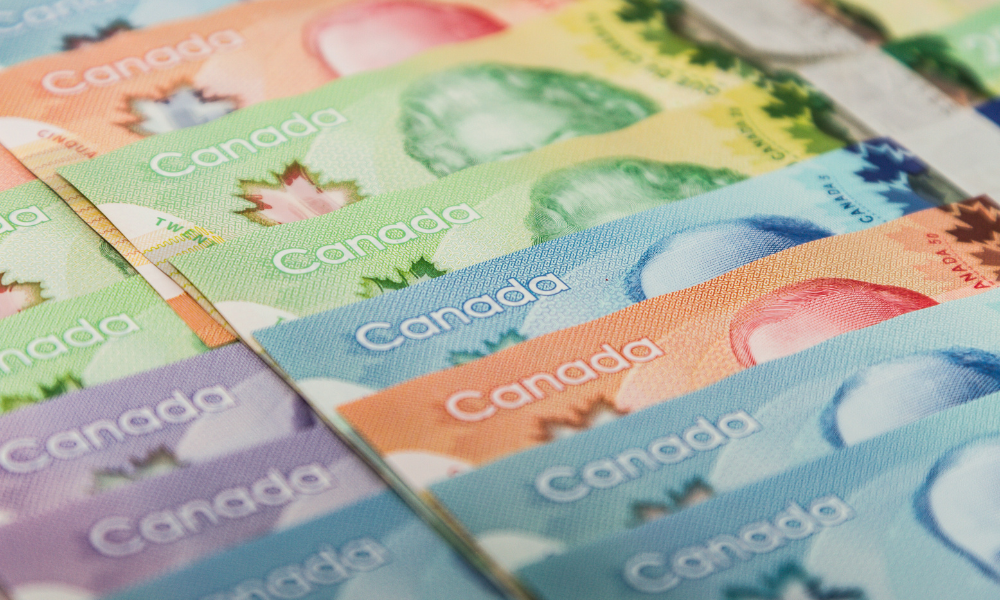Will mean province has highest rate in Atlantic Canada

Prince Edward Island is set to see a $1-per-hour increase to its minimum wage over the next 12 months.
Minimum wage will increase to $16.50 per hour by Oct. 1, 2025, up from the current $16.00 hourly rate.
Then, the minimum pay will be $17 per hour effective April 1, 2026.
The federal government and numerous provinces have already increased their minimum wage rates this year. this year.
‘This raise to the highest minimum wage needs to stop’
With the change in base pay in P.E.I., the province is set to have the highest rate in Atlantic Canada.
Soon, other provinces will aim for that top spot, and this cycle has to stop, said Frédéric Gionet, the director of legislative affairs for the Canadian Federation of Independent Business (CFIB) in Atlantic Canada.
"I see P.E.I. is going to have the highest minimum wage again. And then New Brunswick and Nova Scotia catch up, and then P.E.I. goes. And so it seems like a race to the top," Gionet said, according to a CBC report.
"I think this raise to the highest minimum wage needs to stop… We are pleading with governments to find other methods to establish minimum wage, something more grounded."
Gionet also said that P.E.I.’s approach to adjusting the base pay is too simplistic and would be of little help to the minimum wage earners themselves because it would mean a modest net pay raise for workers.
“It's not going to make a difference on reducing poverty in that sense,” he told CBC.
Increased costs for employers
Also, the change would mean that 60% of CFIB members will need to raise prices and increase wages for other employees who are not earning the minimum wage, said Gionet.
"If you're making $20 an hour, and then the minimum wage is going up, there's some kind of upward pressure on those who are already making more than minimum wage, and that's the majority of small businesses already paying above minimum wage. So really, it's inflationary a little bit," he said in the CBC report.
Minimum wage increases do little to lower poverty rates and can actually hurt low-income workers, according to a previous report from the Fraser Institute.
How P.E.I. assesses minimum wage changes
The change in minimum pay in P.E.I. is a result of recommendations from the province’s Employment Standards Board.
P.E.I.’s Employment Standards Act states that the board shall meet at least once a year to review the Minimum Wage Order. In that process, they must solicit and consider written and in-person submissions from the public.
In advising the Lieutenant Governor in Council, the board shall issue a report taking into account the social and economic effects of the minimum wage rates in the province and shall
consider, among other matters:
- any cost of living increase since any previous order affecting the cost to an employee of purchasing the necessities of life, including housing, food, clothing, transportation and health care and supplies;
- economic conditions within the province and the concept of reasonable return on private investment; and
- measures of poverty and the ability of an employee to maintain a suitable standard of living.
Here’s how minimum wage rates stand across Canada:
|
Jurisdiction |
Minimum wage rate |
Effectivity date |
|
Federal government |
$17.75 |
April 1, 2025 |
|
Alberta |
$15.00 |
June 26, 2019 |
|
British Columbia |
Up to $17.85 from the current $17.40 |
June 1, 2025 |
|
Manitoba |
Up to $16.00 from the current $15.80 |
Oct. 1, 2025 |
|
New Brunswick |
$15.65 |
April 1, 2025 |
|
Newfoundland and Labrador |
$16.00 |
April 1, 2025 |
|
Northwest Territories |
$16.70 |
Sept. 1, 2024 |
|
Nova Scotia |
Up to $16.50 from the current $15,.70 |
Oct. 1, 2025 |
|
Nunavut |
$19.00 |
Jan. 1, 2024 |
|
Ontario |
Up to $17.60 from the current $17.20 |
Oct. 1, 2025 |
|
Prince Edward Island |
$16.00 |
Oct. 1, 2024 |
|
Quebec |
$16.10 |
May 1, 2025 |
|
Saskatchewan |
$15.00 |
Oct. 1, 2024 |
|
Yukon |
$17.94 |
April 1, 2025 |
Minimum wage vs. living wage
Despite this, the coming $17-per-hour minimum wage in P.E.I. is still way below the estimated $22.76 living wage for the province, according to the Canadian Centre for Policy Alternatives (CCPA).
CCPA-NS Director Christine Saulnier noted: “Without more effective government policies and higher wages supporting workers to at least keep pace with the cost of living, they are faced with very difficult choices about their monthly budgets, often sacrificing their health.
“Governments could help address the gap in living wages if they chose to act more decisively in support of broad-ranging policies.”
She suggests that federal and provincial governments must provide more generous income support to more people, and invest in housing, transportation, food security and public services like child care and health care “to make life more affordable for all low-wage workers”.
“While the PEI government announced a new provincial child benefit in 2025, at $30 a month, this will hardly be enough to support families with children, while those households without children also deserve support.”




